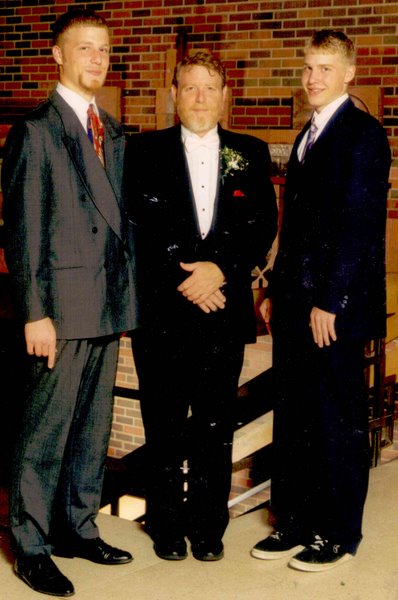JUST FOUND THIS EXCEPTIONAL AND EXTREMELY INFORMATIVE INFORMATION,
so I was compelled to pass it along immediately.
... from Scott Ritter via Truthdig.org
As a chief weapons inspector for the United Nations Special Commission in Iraq, Scott Ritter was labeled a hero by some, a maverick by others, and a spy by the Iraqi government. In charge of searching out weapons of mass destruction within Iraq, Ritter was on the front lines of the ongoing battle against arms proliferation. His experience in Iraq served as the basis for his book Endgame, which explored the shortcomings of American foreign policy in the Persian Gulf region and alternative approaches to handling the Iraqi crisis, and for Iraq Confidential, which detailed his seven year experience as a weapons inspector. Scott has had an extensive and distinguished career in government service. He is an intelligence specialist with a 12-year career in the U.S. Marine Corps including assignments in the former Soviet Union and the Middle East. Rising to the rank of Major, Ritter spent several months of the Gulf War serving under General Norman Schwarzkopf with US Central Command headquarters in Saudi Arabia, where he played an instrumental role in formulating and implementing combat operations targeting Iraqi mobile missile launchers which threatened Israel. In 1991, Ritter joined the United Nations weapons inspections team, or UNSCOM. He participated in 34 inspection missions, 14 of them as chief inspector. Ritter resigned from UNSCOM in August 1998, citing US interference in the work of the inspections. Here is the excerpt from his latest dig on Truthdig.
"Karbala is a holy city for the Shiites. Its status as such is based on the fact that Hussein, a grandson of the prophet Muhammad and son of Ali, the fourth caliph, was killed outside Karbala in a battle between Hussein’s followers and forces loyal to Yazid, son of Muawiyah, the fifth caliph. The two sides were fighting over the line of succession when it came to leading the Muslim faithful after the death of Muhammad in the year 632. Abu Bakr, a close colleague of Muhammad but not a member of Muhammad’s biological family, was elected as the first caliph after the prophet’s death, an act that many Muslims believed broke faith with a necessity for the successor of Muhammad to be from his family. Abu Bakr’s death brought about a quick succession of caliphs, all of whom met untimely deaths and none of whom were from the family line of Muhammad. "
"When Ali was elected as the fourth caliph, many Muslims believed that for the first time since the death of Muhammad the caliphate had been restored to one properly authorized in the eyes of God to lead the Muslim faith. In fact, upon Ali’s accession as caliph, one of his first acts was to seek to restore the Muslim faith to its puritanical origins, which Ali believed had been departed from by the merchant families closely allied with the third caliph, Othman. Ali’s efforts were bitterly resisted by merchant families in Damascus, which refused to recognize Ali as the caliph. The head of the Damascus rebels, Muawiyah, fought a bitter conflict with Ali, which weakened the caliphate and paved the way for Ali’s assassination."
"Upon Ali’s death, the caliphate was transferred to his elder son, Hassan, but when this succession was challenged by Muawiyah, Hassan relented, transferring the caliphate to Muawiyah with the caveat that once Muawiyah died, the caliphate would be returned to the lineage of the prophet Muhammad. When Muawiyah died, the caliphate passed to his son, Yazid. This succession was challenged by Hussein, Hassan’s brother and Ali’s younger son, who believed that the succession, as dictated by Hassan when he abdicated, should have gone to someone within the direct line of the prophet Muhammad, namely Hussein. Yazid’s treacherous attack on Hussein and his followers, occurring as it did during prayer time, set the stage for the split in the Muslim faith between the Shiat Ali (Shia, or followers of Ali) and the Ahl-i Sunnah (Sunni, or the people who follow in the custom of the prophet Muhammad). Both Shiite and Sunni view one another as deviants from the pure form of Islam as taught by Muhammad, and as such functioning as apostates deserving death."
This is just a part of the whole story, if you want to know much, much more about the conflict in Iraq, read this and more of Ritters work, you can find his books at:
WAGING PEACE
http://www.amazon.com/exec/obidos/ASIN/1568583281/truthdig-20
TARGET IRAN
http://www.amazon.com/exec/obidos/ASIN/1560259361/truthdig-20
Just read between the lines...
Red Text is the real story hiding between the lines.
Violet Text is a notable quote from a specific blogger.
Blue Text is my own personal commentary.
Gold Text is a link to the original sources.
One word of advice I would offer to everyone who reads this blog;
....Each and every day, take just a moment of your precious time to pray for Peace and Justice.
Violet Text is a notable quote from a specific blogger.
Blue Text is my own personal commentary.
Gold Text is a link to the original sources.
One word of advice I would offer to everyone who reads this blog;
....Each and every day, take just a moment of your precious time to pray for Peace and Justice.
Subscribe to:
Post Comments (Atom)









No comments:
Post a Comment